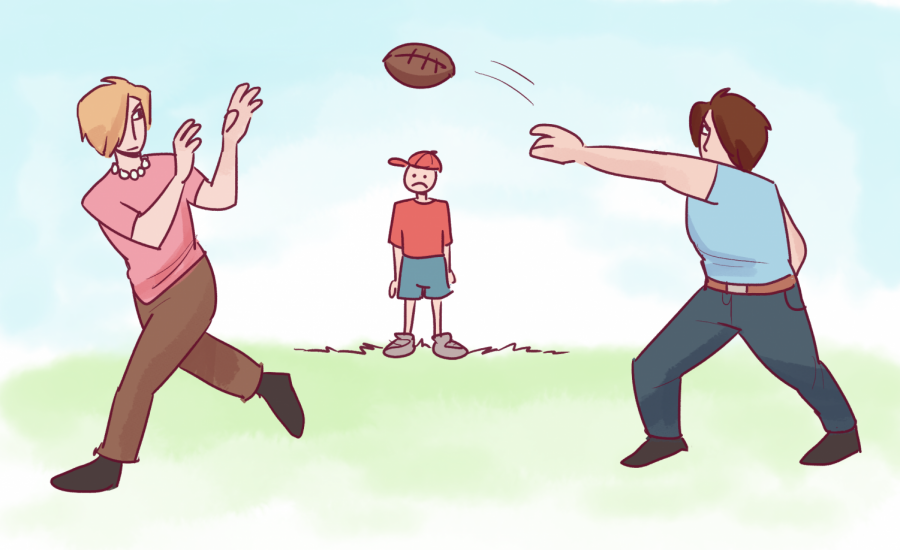Need to look something up on Wikipedia before a test? Hoping to wiki-race your friends instead of writing that in-class essay in English? Want to prove Mr. Simpson wrong on some esoteric event in American history by using the world’s largest encyclopedia? You’re going to have problems with that today: Wikipedia is participating in the SOPA Blackout. That means that the site has “gone dark” to protest the Stop Online Piracy and PROTECT IP Acts, bills now in the House and Senate, respectively, that aim to limit online piracy of intellectual property.
Most people, myself included, agree that online piracy is a problem for those who make a living creating books, movies, and music. The problem with SOPA and PIPA, however, is how the bills plan to go about stopping online piracy. The bills propose a system by which foreign sites which are determined to participate in copyright or trademark infringement must be removed from the Domain Name Servers (DNS) of all US Internet Service Providers within five days of receiving a notice from the Attorney General. Search engines would also have to prevent users from accessing links to sites that were deemed infringing and payment and ad networks would have to cut off all financial ties with these sites. In short, the bills would take the notice-and-takedown system of the Digital Millennium Copyright Act (which is viewed by its many critics as open to abuse and largely ineffective) to a whole new level, making entire sites blink out of existence if the Attorney General determined that they were illicitly spreading copyrighted materials.
If the bills don’t seem that draconian in the abstract, let’s look at an example. Since the notice-and-cutoff provisions in the bills only target foreign sites, let’s take a look at Friendster, a social networking site based in Malaysia and popular throughout Southeast Asia. Let’s imagine that a user on Friendster posts a link to a torrent file of the latest Justin Bieber album. Well, suddenly Friendster has become a site that facilitates copyright infringement by allowing that link to be posted. The Attorney General could then issue an injunction saying that the site had to be censored in the US. Within five days, typing in “friendster.com” would have to result in a domain error and you would no longer be able to find the site on search engines like Google or Bing. In other words, the United Firewalls of America would have blocked the site to everyone in the US – just like Iran blocked Twitter during the Green Revolution and the Great Firewall of China blocks Facebook on a regular basis. If those examples don’t really bring it home to you, just imagine what would happen if the school’s firewall extended into your home computer. Oh, and you wouldn’t be able to go on your iPhone or use UltraSurf to get around this one.
The bill’s restrictions don’t just apply to foreign copyright infringers, however. The bill also calls for the blocking of any site that gives information on how to circumvent the restrictions of SOPA and PIPA. Think about that: If the Wikipedia article on the United Firewalls of America so much as mentioned the fact that you could circumnavigate the DNS block by typing in the IP address of the site you were trying to reach (66.220.149.11 for Facebook and 208.80.152.201 for Wikipedia, for instance), the entirety of Wikipedia would have to be blocked – even though the site is hosted and operated from inside US borders. The same thing would go for Facebook if someone posted a workaround to their friend’s wall. Come to think of it, even edinazephyrus.com would be classified as an “offending site” for having published the previous sentences.
SOPA and PIPA do not represent an effective solution to the kinds of online piracy that have pillaged the bottom lines of major record labels and film studios in the past decade. It should also be noted that the business models of these major companies entirely depend on them being centralized distributors of content – a model that the Internet has proven to be obsolete in case after case, from the cult-like popularity of science fiction writer Cory Doctorow (who releases all of his books for free online) to the blockbuster success of Radiohead’s “In Rainbows,” an album that was released for free online under a pay what you like scheme (along with a large physical release). These companies, after all, don’t create the popularity around their products – that buzz is generate by the masses talking, blogging, remixing, and (sometimes) torrenting the content.Instead, these bills propose a significant step towards Internet censorship in the United States. Given the amazing ability of the Internet to facilitate the dissemination of ideas, this censorship would also constitute an undeniable impingement of free speech. Should the United States of America, normally regarded as a bastion of liberal democracy and freedom, join the ranks of Syria and China in censoring its Internet, merely for the sake of a few companies with outdated business models? For the sake of dissidents, journalists, and high schoolers creating mashups of their favorite songs all over the country, I certainly hope not.The best thing you can do to help fight SOPA and PIPA is to call or email your Congressional representatives: Erik Paulsen, the House representative for our district, and Senators Al Franken and Amy Klobuchar.





